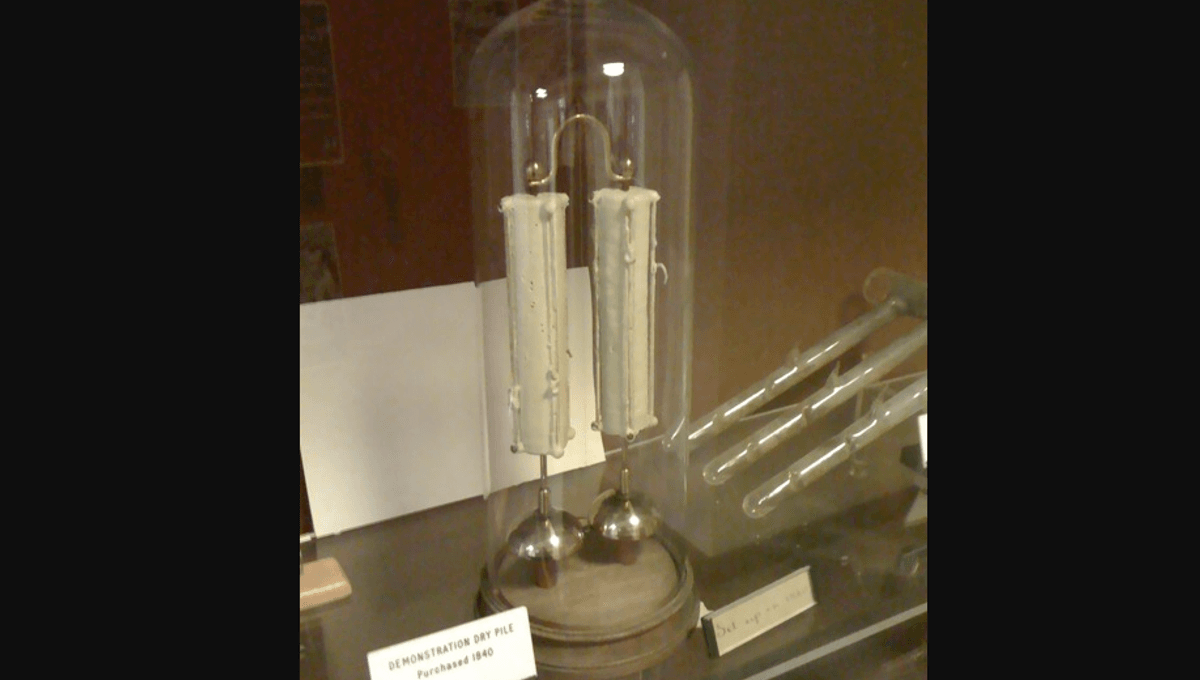
The gentle chime of the Oxford Electric Bell can barely be heard, but what it lacks in loudness, it more than makes up for in the durability of its battery. The bell has been ringing since 1840, making it one of the world’s longest running science experiments – though quite what’s kept it going for so long is something of a mystery.
University of Oxford physics professor Reverend Robert Walker purchased the bell back in 1840 and it can now be found in the university’s Clarendon Laboratory, encased behind two layers of glass.
In part thanks to its location and the other, the type of batteries it’s thought to be running on, the bell is also known as the Clarendon Dry Pile – dry piles are an early type of battery made up of stacks of metal discs.
Why has it been running for so long?
At least part of the reason why the bell has been chiming away for so long is thought to be because it doesn’t require much power in the first place, nor does a lot of energy get lost.
“As it moves back and fore, what happens is the little lead bell touches the two bells either side. And it charges and discharges continuously,” Dr Robert Taylor explained to the BBC. “A small amount of charge trickles between the two ends and the only loss, basically, is the resistance of air.
It might also have something to do with the batteries’ composition, but therein lies the mystery – though scientists have some reasonable ideas, no one knows exactly what they’re made of. It’s called a “dry pile” because of its resemblance to those made by Italian priest and physicist Giuseppe Zamboni.
The Zamboni pile consisted of “about 2000 pairs of discs of tin foil glued to paper impregnated with zinc sulphate and coated on the other side with manganese dioxide.” The batteries in Oxford are also sealed with an outer coating believed to be sulfur, which ends up making them look more like candles.
They’re definitely not candles, otherwise the bell wouldn’t work, but unless someone cracks the batteries open – which would obviously ruin the experiment – we can’t know for sure what’s inside them and thus how that might contribute to their longevity.
When will it stop?
Another option is to simply wait until the batteries finally run out. The bell has had an impressive run, but that run might soon be coming to an end.
“It’ll keep going for about another five or 10 years possible, given the fact that it has slowed down noticeably in the last 40 years,” said Taylor. “The reason it’ll stop is that it’ll run out of energy.”
“All batteries eventually run out of energy.”
Source Link: World's Oldest Running Battery Has Been Chiming For Over 180 Years